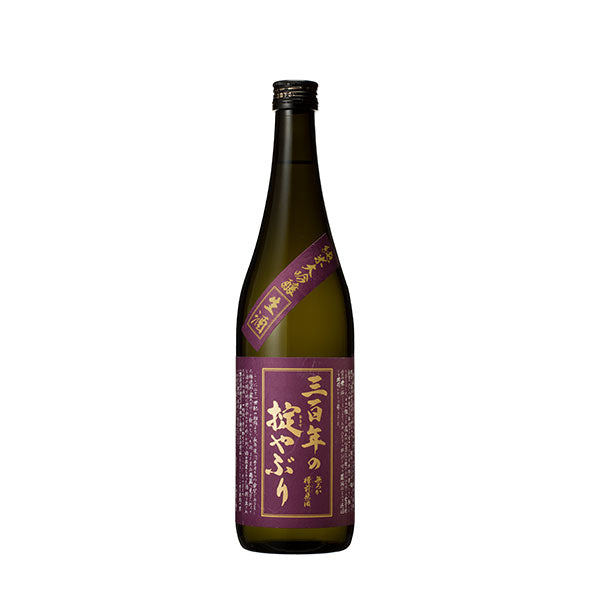-
 >
>
- Product list >
- Sanbyakunen-no-okiteyaburi Junmai-daiginjo unpasteurized undiluted without charcoaled (720ml)
Sanbyakunen-no-okiteyaburi Junmai-daiginjo unpasteurized undiluted without charcoaled (720ml)
詳しく見る
- *All prices shown are the product prices from the Japanpage:.
- *Product price can be shown in multiple currencies as reference values.
- *Payment should be made in Japanese yen.
- *After filling in delivery address, grand total (product price + shipping cost (packing + shipping + insurance) +tariffs & taxes) will be shown on the shipping cart page.
- *All prices shown are the product prices from the Japanpage:.
- *Product price can be shown in multiple currencies as reference values.
- *Payment should be made in Japanese yen.
- *After filling in delivery address, grand total (product price + shipping cost (packing + shipping + insurance) +tariffs & taxes) will be shown on the shipping cart page.
"Sanbyakunen-no-okiteyaburi"’s highest quality sake brand is "Sanbyakunen-no-okiteyaburi Junmai-daiginjo, unpasteurized undiluted without charcoaled"Sanbyakunen-no-okiteyaburi Junmai-daiginjo, unpasteurized undiluted without charcoaled. It's a high class Junmai Daiginjo, brewed using a version of "Omachi", the only variety of sake rice not once modified since it was discovered 160 years ago, milled down to 48%, along with yeast from Yamagata and underground water from Zaouzan. When you drink it, the rich, full-bodied taste and soft ginjo fragrance fills your mouth. The flavor is on the heavy side, but it has a sharp sour element to it, while retaining a uniquely light, soft body. It is not normally aged, but has the potential to taste even better after aging at freezing temperature.
Pairing food proposed from Vendor
Beefsteaks
About "Sanbyakunen-no-okiteyaburi"
A completely unprocessed Murokagenshu, bottled in the pressing room immediately after it gets made. We want you to taste sake as it is naturally, even if it means breaking the rule of always sterilizing sake with heat before shipping, which our business has upheld since our founding 300 years ago. That's what drove us to create this limited series. This sake has a powerful impact created by the body and taste of koji mold, and its slight effervescence.
Recommended temperature
- Atsukan (50 - 55℃)
- Jokan (45 - 50℃)
- Nurukan (30 - 40℃)
- Room temperature (15 - 20℃)
- Hanabie (10℃)
- Yukibie (5℃)
Type


Tag
Appearance
-
Clarity
Transparency
Hazy
-
Colour
Colorless
Dark brown
-
Intensity
Water
Deep
Nose characteristics
-
Intensity
Low
Strong
Taste characteristics
-
Light / Body
Light
Body
-
Sweet / Dry
Sweet
Dry
-
Simple / Complexity
Simple
Complexity
-
Acidity
Low
High
-
Umami
Low
High
-
Finish
Low finish
Long finish
Aroma and flavor
Apple
Detailed information
| Volume | 720ml |
|---|---|
| Size (L W H) | 8.4 x 8.4 x 30.8 cm |
| Weight | 1.3kg |
| Ingredients | Rice, Rice koji, Water |
| Region | Yamagata |
| Alcohol content | 16%vol. |
|
Sake Meter Value
|
-4 |
|
Acid level
|
1.7 |
|
Polishing ratio
|
48% |








